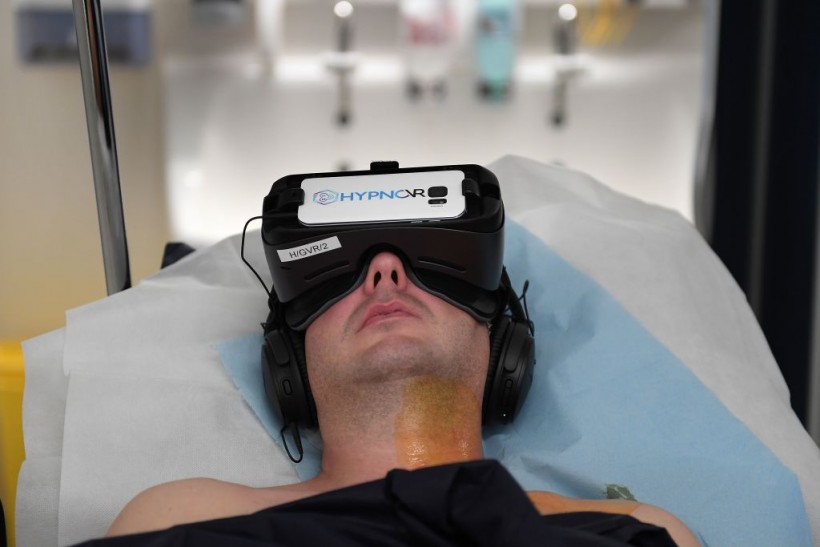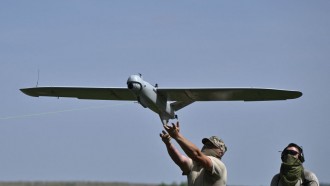The Virtual Reality experience does more for the public than movies, series, or games, as it may also help in using fewer anesthetics during surgeries, with the device enough to divert their attention or pain. New research aims to explain the benefits of VR use in medical practices, particularly for surgical applications on patients.
VR Experience for Surgeries: Less Anesthetics

(Photo : FREDERICK FLORIN/AFP via Getty Images)
According to MIT's Technology Review, people with hand surgeries became control groups for research, and it grouped 34 people into two factions that would receive the same treatment. The only difference they had was one group would wear VR headsets, and the other would not.
The study was carried out by Beth Israel Deaconess Medical Center in Boston, and the researchers already published their findings in the PLOS One journal with significant results.
According to the study, the VR group was given less anesthetic of only 125.3 milligrams per hour of the propofol sedative, accompanied by their VR experience playing meditative scenarios.
On the other hand, the non-VR group received the average amount of the sedative with 750.6 milligrams per hour on their dosages.
Read Also: VR Treatments For Mental Health Have Exceedingly Great Potential
Will Patients Feel Less Pain with VR?
While people would still feel the same amount of pain depending on their tolerance, people with the VR headsets significantly felt less pain as their brains were stimulated with calming media. The study also regarded that the VR group was able to recover quickly, spending only an average of 63 minutes in recovery compared to the 75-minute stay of those that did not use the device.
VR and its Experience for All
Virtual reality does more than take people to the digital world and present a different point of view for all watchers or users of this next-generation experience. Simulations and practices are indeed already been part of the VR world for a long time now, with doctors and surgeons utilizing the technology to master their craft and be ready for their next procedures.
There are many which already reimagined VR and AR experiences to help in stimulating the brain, and it is the main offers of the modern virtual experiences available to the world now.
One application for VR is its use in dental surgeries where dentists provide VR headsets to patients during their operations, and it has been found to reduce surgery anxiety during procedures. Instead of the brain focusing on what is happening to the body, VR works to take the mind elsewhere, particularly in the digital world.
Many clinics and hospitals are already adopting VR to their offers for both patients and doctors, and it is a good application of the technology which surpasses its entertainment features for all. VR gave the world a new experience with its otherworldly offers, but now it is giving people a chance to receive less anesthetic during intricate operations.
Related Article: VR Movie Mods as Treatment for Lazy Eye from Luminopia Gets FDA Approval-How Does It Work?
This article is owned by TechTimes
Written by Isaiah Richard





